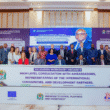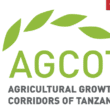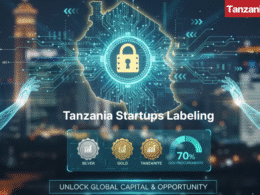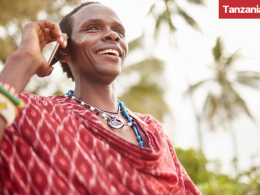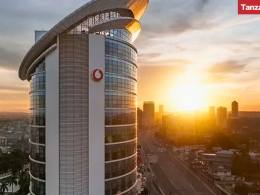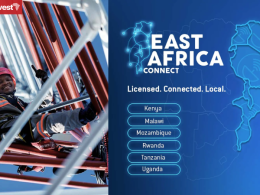TanzaniaInvest had the pleasure of interviewing James M. Kilaba, Director General of the Tanzania Communications Regulatory Authority (TCRA).
Kilaba talks about the development of Tanzania’s telecom sector, as well as the challenges and opportunities in its future outlook.
TanzaniaInvest (TI): Tanzania is the second largest telecoms market in East Africa behind Kenya with a penetration of 79% of the total population in 2015. What are the drivers of this progress?
James M. Kilaba (JMK): Teledensity increased at an annual average growth rate of 6% during the period of five years from 2011 to 2015.
Penetration increased by 20% from 59% in 2011 to 79% in 2015 and stood at 80.2% as of September 2016 with 40,110,187 subscribers.
Drivers of the progress include:
- Competition in the telecom sector which necessitate innovations, expansions and marketing to increase subscription base;
- Expansion of mobile coverage to underserved/remote area as facilitated by National ICT Broadband Backbone (NICTBB) and Universal Communications Services Access Fund (UCSAF);
- Affordable tariffs for telecom services facilitated by introduction of bundle pricing of telecom services;
- Affordability of telecom devices.
TI: What are the ambitions, strategy and challenges in terms of the use of telecom services in Tanzania?
JMK: Our ambition is to achieve more than 100% teledensity in the near future with all Tanzanians having access to the communications services including broadband coverage.
Our strategy includes continued expansion of the mobile network coverage to underserved areas through UCSAF and other initiatives, promoting innovations in the telecom sector, and enhancing the regulatory framework.
However, current challenges in Tanzania’s telecom sector include cybercrime, lack of knowledge in the use of telecom services, and misuse of communication services.
TI: The GSM Association (GSMA) indicates that mobile is one of the most heavily taxed sectors in Tanzania with the second highest tax burden relative to the cost of mobile ownership in Africa, after Gabon, and this burden is twice the global average.
The GSMA suggests that by eliminating airtime excise on mobile broadband will add 1m mobile broadband connections and deliver USD113m in additional revenues to the industry. What is your take on that?
JMK: It is true that the GSMA February 2015 report on Digital inclusion and Mobile Sector Taxation in Tanzania reported that consumer taxes create barriers to affordability and therefore the use of telecoms services.
Introduction of VAT to mobile services and a specific excise tax of 17% have been mentioned as among challenges to the uptake of telecom services.
Tax reforms have started in the East African Community (EAC) and the South African Development Community (SADC) to achieve a level playing field to mobile operators in the region and facilitate establishment of one area network.
Taxation may impact growth negatively or positively which is why harmonization is done regionally and every year there is review of taxes in all sectors.
TI: Tanzania’s new Finance Bill enforced on July 1st 2016 requires Tanzanian telecom companies to list at the Dar es Salaam Stock Exchange (DSE) by the end of 2016. What is the rationale behind this bill and how do you expect it to positively impact the industry?
JMK: The rationale for telecom companies to list on DSE is to empower local Tanzanians. The move will have a positive impact on the industry due to:
- Increased transparency in company affairs;
- More capital to the operators hence more investments in their networks;
- Expanded ownership, which will increase trust on mobile network operators.
Furthermore, Tanzania has the market capacity to absorb the listing.
Tanzanians are encouraged to buy mobile shares individually or in Groups/Saccos/Associations.
TI: Tanzania is on the path of becoming a middle-income country by 2025. Which roles are the telecom sector and TCRA going to play?
JMK: The telecom sector was fully liberalized since 2005 through introduction of the Converged Licensing Framework which has positive benefits in terms of increased investments, products and services and as contributing factor to the success of other sectors of the economy.
The government is reviewing its regulations to enhance a level playing that will foster competition, increase revenues etc.
TI: Where do you see the most appealing investment opportunities in telecoms in Tanzania?
JMK: Current investment opportunities in Tanzania’s telecoms include:
- Establishment of training centres for ICT application innovations and multimedia;
- Development of local content;
- Establishment of ICT Business Processing Outsourcing (ICT-BPO) to take advantage of availability of cheap ICT labour force and time difference;
- Establishment of electronic waste management/recycling plant;
- Deployment of communication satellite for the United Republic of Tanzania; and
- Establishment of an assembling plant for mobile phones and its accessories.


